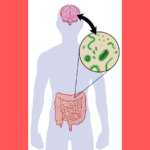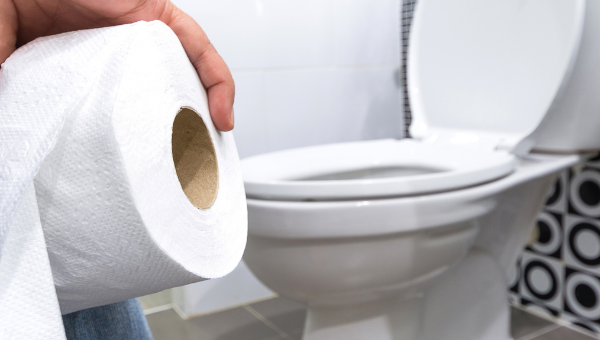Gut health and the immune system
Have you ever had a ‘gut instinct’ about something? This isn’t just referring to your intuition. Improving gut health starts with choosing the right foods, and taking a good look at your colon health – the epicenter of your entire well-being. Did you know that approximately 70% of your immune system is actually inside your gut? Since our overall health and well-being is largely dependent on the health of our immune system, it should make sense to optimize our gut health.
Too busy to eat
We can’t blame all of our digestion problems on ultra-processed foods. We’ve also lost many of our mindful habits around eating, and our lifestyles may be working against us when it comes to digestive health.
Modern-day living makes us work harder and faster, and eating just becomes something that gets in the way. We eat while we’re driving. While we’re busy typing away on our computers. We grab and go, or order in more often than not.
Ultra-processed foods fill a need for convenience, and the companies that make them have engineered ingredients to have the very flavors—particularly salty and sweet—plus textures, smells, and colors that appeal to our first phase of digestion – The Cephalic Phase.
Research shows these truths about ultra-processed food:
- It is as addictive as cigarettes and cocaine, according to a 2020 article in Nutrients.
- We are eating more and more of it. A study published in the American Journal of Clinical Nutrition in 2022.
- It can change the way our cephalic system operates. A January 2024 study in Molecular Metabolism found that a short-term highly processed diet negatively affected smell, brain responses to smell, biochemistry in the nasal mucosa and the brain, and brain glucose metabolism in mice.
“Even short periods of highly processed food consumption are sufficient to cause early olfactory and brain abnormalities, which has the potential to alter food choices and influence the risk of developing metabolic disease,” the study concluded.
https://www.sciencedirect.com/science/article/pii/S2212877823001710
Cephalic System Manipulation
A 2020 paper in Appetite concluded that cephalic-phase responses—our thoughts included—can power not only digestive functions but also metabolic ones due to their ability to release insulin.
Merely talking about food can trigger the release of insulin before food is consumed, and that can lead to poor food choices. We are disconnected from what our bodies actually need because of foods that deviate from what is found in nature. Because of this, we may need to reset our taste buds because of overstimulation and desensitization.
We can recalibrate the cephalic system to natural flavors by adding in 10 percent of a new flavor or food to each meal and then working up gradually. It’s like”micro-dosing” whole foods.

Gut-Brain connection
Your gut and your brain are connected through a complex system of hormones and neurotransmitters that constantly send information back and forth. Boosting the health of our gut doesn’t just impact our immune system, it has an impact on our mental health as well.
Advice for boosting gut health
- Keep it clean! Keeping your gut clean and clear of toxins is #1 in our books. Regular colon cleanses are a great way to do that. What? Clean my colon? Yes…please do. Just like you clean your teeth. Plaque builds up overtime, making it difficult for the body to absorb nutrients and flush out toxins. When you take care of your gut, you’re taking care of your whole body.
- Take a probiotic supplement. Taking a daily dose of healthy bacteria will help keep the bad bacteria at bay and prevent them from taking over. This protects your body by boosting the health of the immune system and strengthening its defenses against pathogens. In addition, good bacteria will help you digest food, absorb nutrients from food, and reduce indigestion. Eating fermented whole foods like sauerkraut, kefir, etc., also have the same effect.
- Eat more fiber. Eating fiber not only helps keep you regular – which is important for daily detoxification – but fiber also feeds the good bacteria in your gut. This is important as it helps keep the good bacteria flourishing while making the environment for bad bacteria less attractive. My favorite way to get a good fiber punch is to take 1 teaspoon of psyllium husk or powder in 250 ml warm water first thing in the morning – not in your smoothie or on top of your cereal… all by itself!
- Eliminate refined sugars. Refined anything is toxic to your gut as it feeds the bad bacteria. This causes bad bacteria to proliferate and overpower the good bacteria. When this happens, the body’s defenses are weakened and the immune function is suppressed. This also causes a major spike and subsequent crash in blood sugar that triggers hormonal releases further impairing function of the GI tract.
- Hydration and lubrication. Your gut needs water and oil to keep waste and toxins flowing. Insufficient water intake can result in constipation which leads to a buildup of toxins in the GI tract. Hydration is also important for nourishing all cells of the body and keeps them strong and healthy. Healthy fats, such as: olive oil, coconut oil, wild salmon, walnuts, pumpkin seeds among others, are full of good fats/oils and will help lubricate your pipes and move that stool along.
You can also be more mindful when experiencing cravings, pausing to consider whether you are experiencing hunger pain, if you are thirsty, or if something else is going on. The wonderful thing about the cephalic phase of digestion is that it offers a lot of opportunities to improve gut health.
What else can you do?
Reduce Stress
I know. Harder than it sounds. But our gut and brain are intimately connected and when we feel stressed or anxious, the hormones released from the brain directly impact gut function. Constipation and diarrhea are common gastrointestinal symptoms associated with stress.
Breathe
Breath is also a fantastic way to control the nervous system. If you take two long, deep breaths every time you sit down to eat, this can have a more positive effect on what you feel like after eating.

Exercise and Gratitude
Exercise is very important for gut and overall health. 20 minutes of activity daily can make all the difference. It improves circulation, elimination, relieves stress, and gives you an overall sense of well-being. Without movement, our bodies can’t regulate anything. So, if you’re not exercising at all, please start slowly. 10 minutes is better than no minutes!
Other suggestions include saying a prayer or expressing gratitude before eating, or try practicing regular stress relief activities like meditation or yoga.
Sleep
Getting the right amount of sleep is an integral part of keeping the gut healthy and happy. A lack of sleep or interrupted sleep can result in many negative outcomes. The longer you go without a good nights sleep, the more likely you are to have digestive issues. Consistency is also a factor. Sleep patterns, like eating patterns should be as consistent as possible. There is still a lot we don’t know about whether sleep affects digestion, or if digestion affects sleep – but either way, we do know it’s a two-way street!
Balance and Control
- Don’t bring foods in your house that you really don’t want to eat. If it’s in the house, you will find some reason to eat it.
- Don’t let the pendulum swing so far that you aren’t enjoying your life, avoiding all temptation, or never socializing. If you’re living half a life, that’s not healthy either.
Find the balance! Balance is found when we create habits that serve our desired outcome. You may have to think a bit on this one… it’s different for everybody.
Be diligent and responsible about the food you eat based on what motivates you. “I want to live a long, healthy life. Be a part of my kids’ lives. Live a functional, happy life as I age.”
Implement a few… or all of these recommendations to improve your overall health. You can do it… it’s just a choice after all.




No Comments